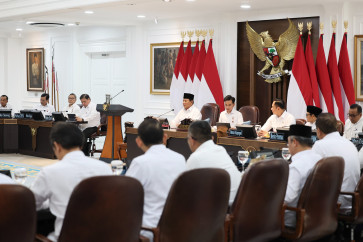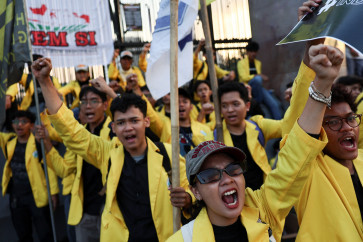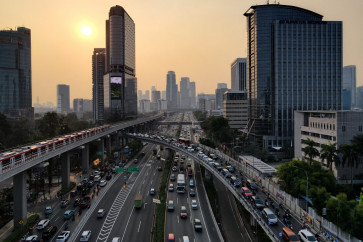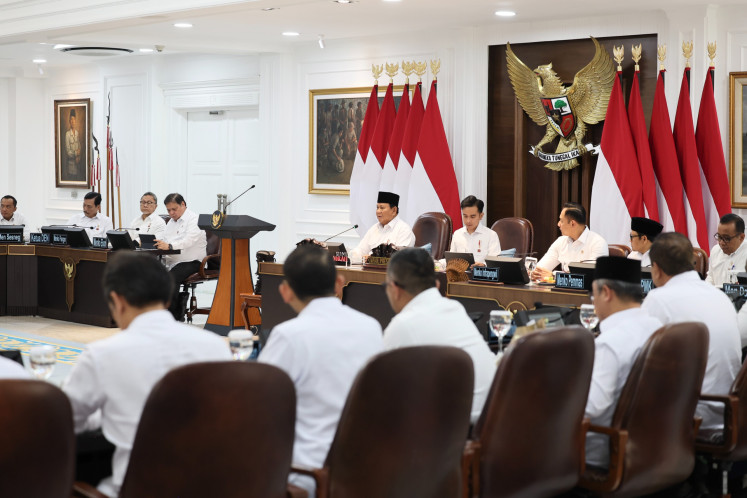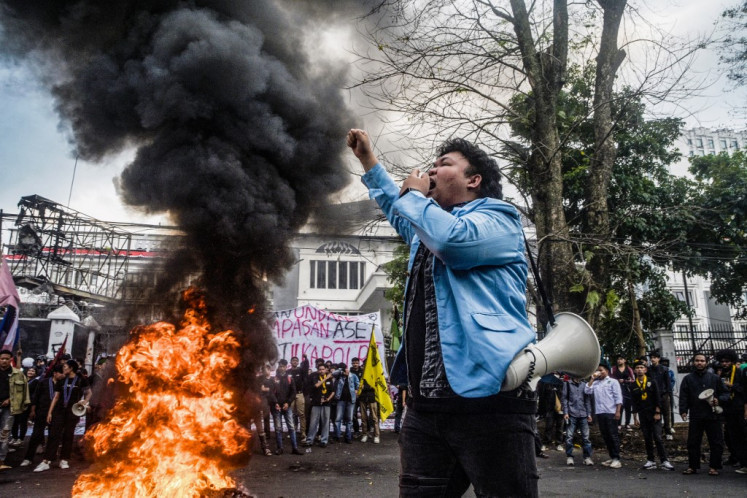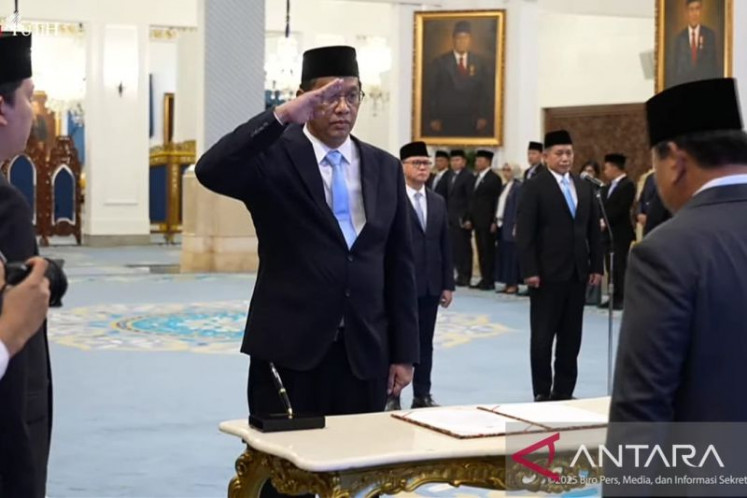Popular Reads
Top Results
Can't find what you're looking for?
View all search resultsPopular Reads
Top Results
Can't find what you're looking for?
View all search resultsMagsaysay and the environment
The Ramon Magsaysay Award, considered Asia’s equivalent of the Nobel Prize, recently given to two Indonesians, clearly acknowledges that there are leaders in this country who significantly bring about positive changes to the environment
Change text size
Gift Premium Articles
to Anyone
T
he Ramon Magsaysay Award, considered Asia’s equivalent of the Nobel Prize, recently given to two Indonesians, clearly acknowledges that there are leaders in this country who significantly bring about positive changes to the environment.
Indonesia is a resource-rich country but is striving to develop its economy, alleviate poverty and at the same time secure energy, reduce deforestation and tackle climate change.
One of the two award recipients was Tri Mumpuni, acknowledged for her work leading IBEKA (the People-Centered Business and Economic Institute) in building community-run hydropower plants in rural Indonesia.
The award for Tri would offer a sense of optimism, particularly to approximately 70-80 million people, or almost one-third of Indonesia’s population, who currently lack access to electricity. These people mostly live in rural areas and the outer islands.
Developing micro-hydro power plants as a renewable energy resource serves the objectives of advancing this country’s economy, reducing greenhouse gas (GHG) emissions and alleviating poverty (for example by providing basic access to electricity).
IBEKA has demonstrated that by building 60 micro-hydropower plants with a capacity to generate 5 to 250 KW of electricity and provide electricity to 500,000 people in rural Indonesia, it has contributed to achieving these objectives.
This organization works closely with local communities to ensure that projects are sustainable in the long term and that electrification will have a maximum impact on the development of the communities. This success gives true hope to millions of Indonesians, in that such a complex challenge can be overcome.
The award is also expected to convince the government to intensify its current work in renewable energy development.
The central government has already had a general energy policy that advocates the diversification of energy sources and conversion from coal and petroleum-based fuels to renewable energy sources in a bid to reduce emissions.
However, the promotion of renewable resource development over the last five years has moved at a snail’s pace. At present, renewable energy production (hydropower, geothermal and biomass) makes use of only 3.4 percent of total potential reserves.
This is rather ironic, considering that this massive archipelago possesses a variety of renewable energy resources, including geothermal, solar, micro-hydro, wind and bio-energy.
Further breakthroughs are urgently required such as by reforming and correcting policy and pricing incoherence (for example by phasing out subsidies for fossil fuels), removing structural impediments and promoting investments in renewable energy.
The success story of IBEKA and others who are harnessing renewable energy, therefore, needs to be magnified and/or replicated.
The other award recipient is another source of inspiration of similar magnitude. Tuan Guru Haji Hasanain Juaini, has made his mark, not only through establishing a progressive Islamic boarding school, but also in motivating and organizing students, community members and fellow Indonesians to actively contribute to forest and water conservation.
Tuan Guru, meaning “esteemed master”, is an honorific title used by Muslim leaders in Lombok Island (east of Bali), West Nusa Tenggara. As a local religious leader, Hasanain is a key non-state actor of considerable influence in Lombok society.
Hasanain and his progressive Narmada Islamic School gained great respect by advocating the importance in preserving the remaining forests and water catchment areas in Lombok. They also demonstrated that conservation can start with a school.
Lombok has experienced the worsening seasonal water crisis. Droughts have brought misery to many and clean water is still a luxury only available to some. During the rainy season, some parts of the island suffer from flooding and landslides. With a majority of Lombok’s people still living in poverty, deforestation and the water crisis have worsened local people’s livelihoods.
A collaborative action plan — between governments, local communities, NGOs, the local public water enterprise (PDAM) — was formulated to show that there are solutions to this resource problem, and Hasanain has been lending his voice to support it since.
The solutions include forest restoration in upper catchment areas, payment for watershed services, river conservation and social economic development for local communities.
To back up his call for conservation, starting from Narmada, his students and teachers have established a number of nurseries providing approximately 1.5 million seeds and seedlings, and are also involved in restoration activities that have successfully rehabilitated 36 hectares of degraded forests.
His own house also provides a good example of conservation, which can start from each individual household. A semi-structured nursery and a humble green garden clearly symbolize the intentions of the owner.
Verses from the Koran on the house wall, including the first revelation (i.e. Iqra! or Read, Recite!), appear to reaffirm the commitment of Hasanain and his school to learn more and understand many things, including from nature.
These two Indonesian winners of this year’s Magsaysay Award have shown that ordinary Indonesians can overcome big challenges. Amid negative political, economic and environmental issues faced by this country, their leadership and success are a demonstration of the confidence, strength and capabilities of our people.
These two figures show that there is in fact a bright light of hope for this nation to prosper.
The writer is a doctoral candidate at the Australian National University, and the recipient of Australian Leadership Award and Allison Sudradjat Award.


